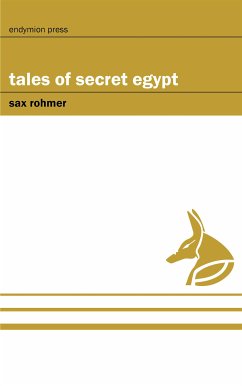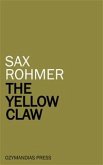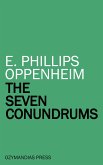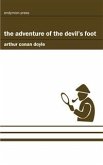The scenes of this story are laid in Egypt -- Abu-Tabah, the inscrutable Egyptian, who appears and disappears so mysteriously, is not so blood-curdling a villain as Fu Manchu, but his exploits possess the same breathless interest that characterized the activities of the yellow doctor. In the latter half of the book, notably in the story, "The Valley of the Sorceress," there is an element new in Rohmer's work -- that of the supernatural ...
Bitte wählen Sie Ihr Anliegen aus.
Rechnungen
Retourenschein anfordern
Bestellstatus
Storno









